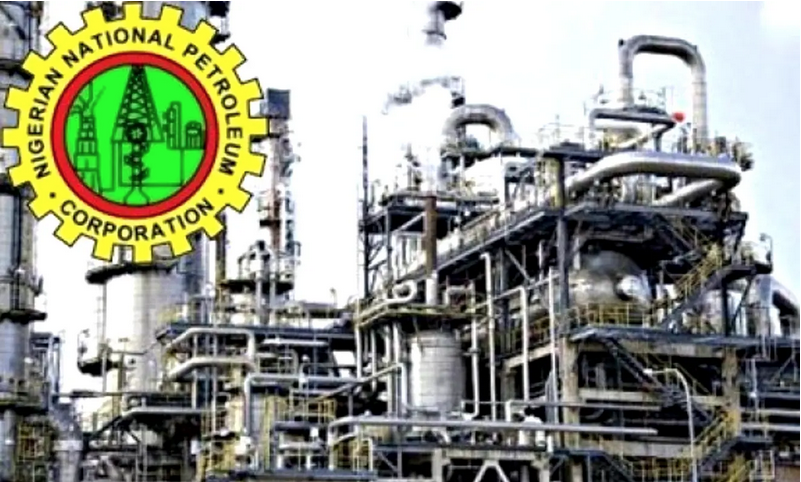NNPC Ltd Reshuffles Leadership, Sacks 200+ Staff Amid Bold Reforms
Table of Contents

In a dramatic shake-up of Nigeria’s oil and gas industry, the Nigerian National Petroleum Company (NNPC) Limited has embarked on a major restructuring drive under the leadership of its new Group Chief Executive Officer (GCEO), Bashir Bayo Ojulari. The changes mark a clear departure from the previous regime, signaling a new era focused on transparency, agility, and bold ambitions.
Key Appointments: New Faces at the Helm
Two key appointments have stirred headlines:
Maryam Idrisu has been named the new Managing Director of NNPC Trading.
Obioma Abangwu has taken over as Chief Liaison Officer for Board Matters.
These appointments follow the reported dismissal of over 200 staff members, including top officials closely aligned with former GCEO Mele Kyari. Among the prominent names asked to leave:
Bala Wunti, former chief of National Petroleum Investment Management Services (NAPIMS)
Ibrahim Onoja, Managing Director of Kaduna Refinery
Lawal Sade, Chief Compliance Officer and former MD of NNPC Trading
Why the Staff Shake-Up?
According to insiders, the mass exit targets employees with 17 months or fewer left before retirement. These individuals were offered early retirement incentives, a practice said to have been in place at NNPC for years.
However, the scale and timing of the dismissals—coming shortly after Kyari's removal—have raised eyebrows and drawn calls for transparency.
Meet the New Leaders
Maryam Idrisu brings a wealth of experience, having served as Executive Director for both Planning & Commercial and Crude & Condensate at NNPC Trading. Her background in Economics (University of Abuja) and Energy Economics (University of Dundee) positions her well to navigate the complexities of global oil trade.
Obioma Abangwu, though less publicly profiled, previously served as NNPC’s Head of Corporate Law and Board Matters. She is known for her legal acumen and is a noted golf enthusiast.
Ojulari’s Bold Vision for NNPC
Since assuming office, Ojulari has been quick to define his leadership style—ambitious, reform-driven, and performance-oriented. He has unveiled a transformative roadmap with aggressive targets:
$30 billion in investments by 2027, $60 billion by 2030
Oil production increase to 2 million barrels/day by 2027, 3 million by 2030
Refining output expansion to 200,000 barrels/day by 2027, 500,000 by 2030
Gas production growth to 10 billion cubic feet/day by 2027, 12bcf/day by 2030
To achieve these, NNPC will:
Reconfigure its business structure for efficiency and agility
Adopt data-driven decision-making
Implement rigorous performance management
Forge transparent, value-aligned partnerships
Control and improve its public narrative
Ojulari insists that these goals are not just statistics, but represent jobs, industrial growth, and energy security for Nigerians.
Calls for Transparency: The PIA Challenge
Experts have weighed in on the staff disengagement. Notably, Professor Wunmi Iledare, a leading voice in petroleum economics, emphasized the need for NNPC to comply with the Petroleum Industry Act (PIA) 2021, which guarantees:
Job security for staff
Transparency in personnel decisions
Strategic accountability
He urged management to explain the rationale behind the sackings—without breaching confidentiality—to avoid speculation and preserve institutional credibility.
“Transparency and accountability, following the rule of law, are key. Both of them are key to attracting investment,” Prof. Iledare said.
Mele Kyari’s Exit and the Political Backdrop
The wave of restructuring follows President Bola Tinubu’s decision last month to dissolve the NNPC board, including Kyari and Chairman Pius Akinyelure. Though Kyari was reappointed by Tinubu in 2023 after initially being appointed by former President Buhari, his removal signals a strategic pivot.
Ojulari has acknowledged Kyari’s contributions and committed to building on his legacy—but with new strategies and a more performance-focused direction.
Conclusion: A New NNPC, But at What Cost?
With fresh leadership and ambitious goals, NNPC Ltd is charting a bold new path aimed at making the organization more profitable, transparent, and globally competitive. But questions remain: Will the restructuring truly drive transformation? Or will the lack of clarity around staff layoffs hinder the company’s public perception and investor confidence?
As Nigeria's oil sector stands at a critical juncture, one thing is clear: Ojulari’s NNPC is playing for high stakes—and all eyes are watching.

In a dramatic shake-up of Nigeria’s oil and gas industry, the Nigerian National Petroleum Company (NNPC) Limited has embarked on a major restructuring drive under the leadership of its new Group Chief Executive Officer (GCEO), Bashir Bayo Ojulari. The changes mark a clear departure from the previous regime, signaling a new era focused on transparency, agility, and bold ambitions.
Key Appointments: New Faces at the Helm
Two key appointments have stirred headlines:
Maryam Idrisu has been named the new Managing Director of NNPC Trading.
Obioma Abangwu has taken over as Chief Liaison Officer for Board Matters.
These appointments follow the reported dismissal of over 200 staff members, including top officials closely aligned with former GCEO Mele Kyari. Among the prominent names asked to leave:
Bala Wunti, former chief of National Petroleum Investment Management Services (NAPIMS)
Ibrahim Onoja, Managing Director of Kaduna Refinery
Lawal Sade, Chief Compliance Officer and former MD of NNPC Trading
Why the Staff Shake-Up?
According to insiders, the mass exit targets employees with 17 months or fewer left before retirement. These individuals were offered early retirement incentives, a practice said to have been in place at NNPC for years.
However, the scale and timing of the dismissals—coming shortly after Kyari's removal—have raised eyebrows and drawn calls for transparency.
Meet the New Leaders
Maryam Idrisu brings a wealth of experience, having served as Executive Director for both Planning & Commercial and Crude & Condensate at NNPC Trading. Her background in Economics (University of Abuja) and Energy Economics (University of Dundee) positions her well to navigate the complexities of global oil trade.
Obioma Abangwu, though less publicly profiled, previously served as NNPC’s Head of Corporate Law and Board Matters. She is known for her legal acumen and is a noted golf enthusiast.
Ojulari’s Bold Vision for NNPC
Since assuming office, Ojulari has been quick to define his leadership style—ambitious, reform-driven, and performance-oriented. He has unveiled a transformative roadmap with aggressive targets:
$30 billion in investments by 2027, $60 billion by 2030
Oil production increase to 2 million barrels/day by 2027, 3 million by 2030
Refining output expansion to 200,000 barrels/day by 2027, 500,000 by 2030
Gas production growth to 10 billion cubic feet/day by 2027, 12bcf/day by 2030
To achieve these, NNPC will:
Reconfigure its business structure for efficiency and agility
Adopt data-driven decision-making
Implement rigorous performance management
Forge transparent, value-aligned partnerships
Control and improve its public narrative
Ojulari insists that these goals are not just statistics, but represent jobs, industrial growth, and energy security for Nigerians.
Calls for Transparency: The PIA Challenge
Experts have weighed in on the staff disengagement. Notably, Professor Wunmi Iledare, a leading voice in petroleum economics, emphasized the need for NNPC to comply with the Petroleum Industry Act (PIA) 2021, which guarantees:
Job security for staff
Transparency in personnel decisions
Strategic accountability
He urged management to explain the rationale behind the sackings—without breaching confidentiality—to avoid speculation and preserve institutional credibility.
“Transparency and accountability, following the rule of law, are key. Both of them are key to attracting investment,” Prof. Iledare said.
Mele Kyari’s Exit and the Political Backdrop
The wave of restructuring follows President Bola Tinubu’s decision last month to dissolve the NNPC board, including Kyari and Chairman Pius Akinyelure. Though Kyari was reappointed by Tinubu in 2023 after initially being appointed by former President Buhari, his removal signals a strategic pivot.
Ojulari has acknowledged Kyari’s contributions and committed to building on his legacy—but with new strategies and a more performance-focused direction.
Conclusion: A New NNPC, But at What Cost?
With fresh leadership and ambitious goals, NNPC Ltd is charting a bold new path aimed at making the organization more profitable, transparent, and globally competitive. But questions remain: Will the restructuring truly drive transformation? Or will the lack of clarity around staff layoffs hinder the company’s public perception and investor confidence?
As Nigeria's oil sector stands at a critical juncture, one thing is clear: Ojulari’s NNPC is playing for high stakes—and all eyes are watching.


